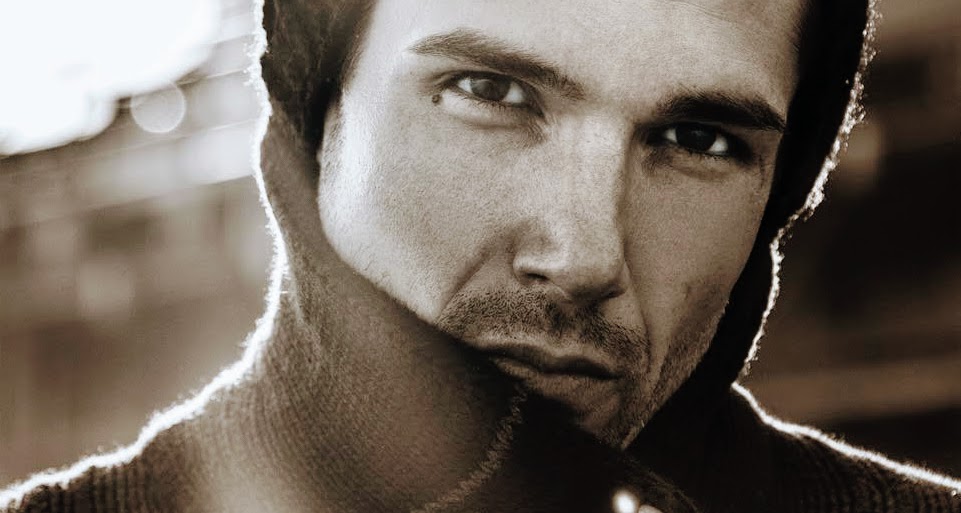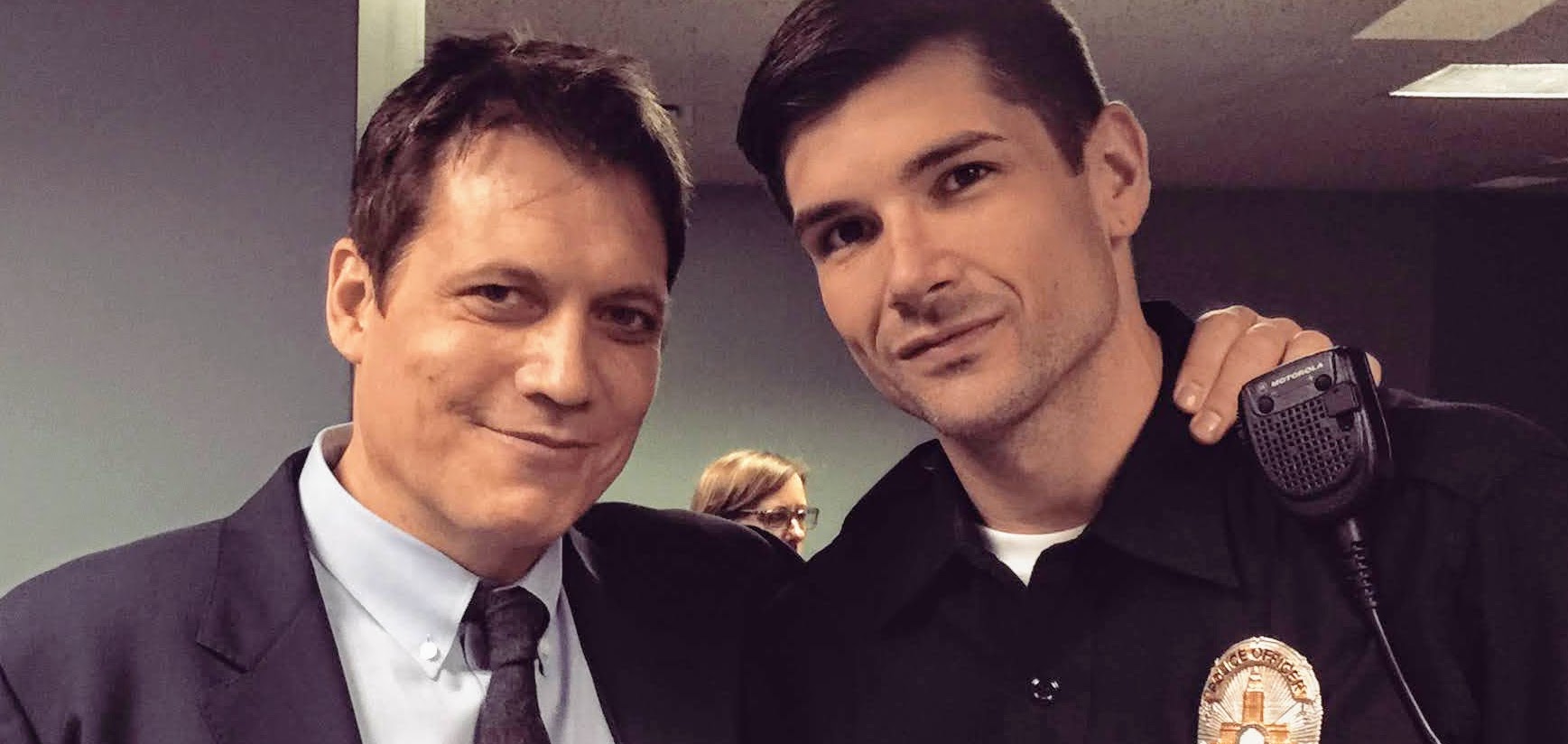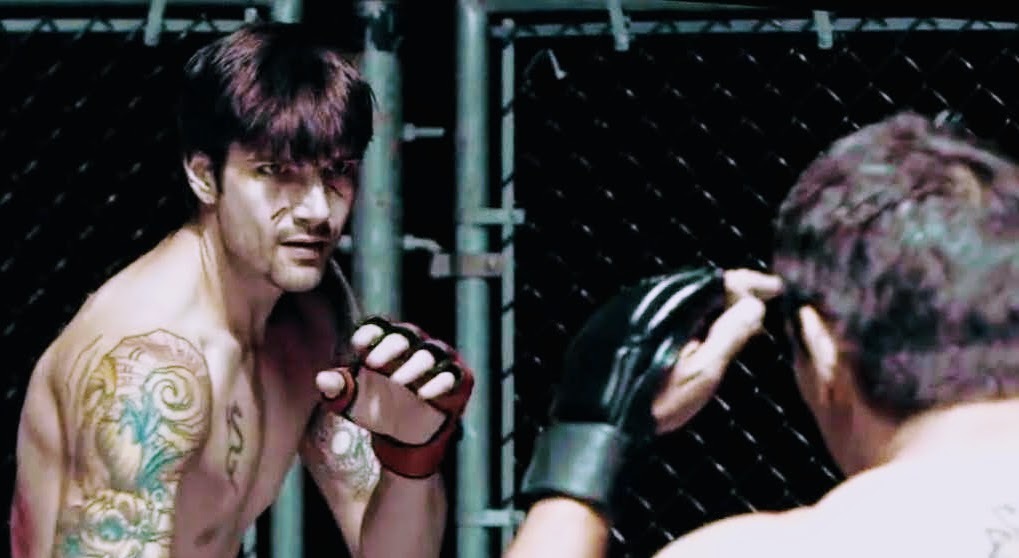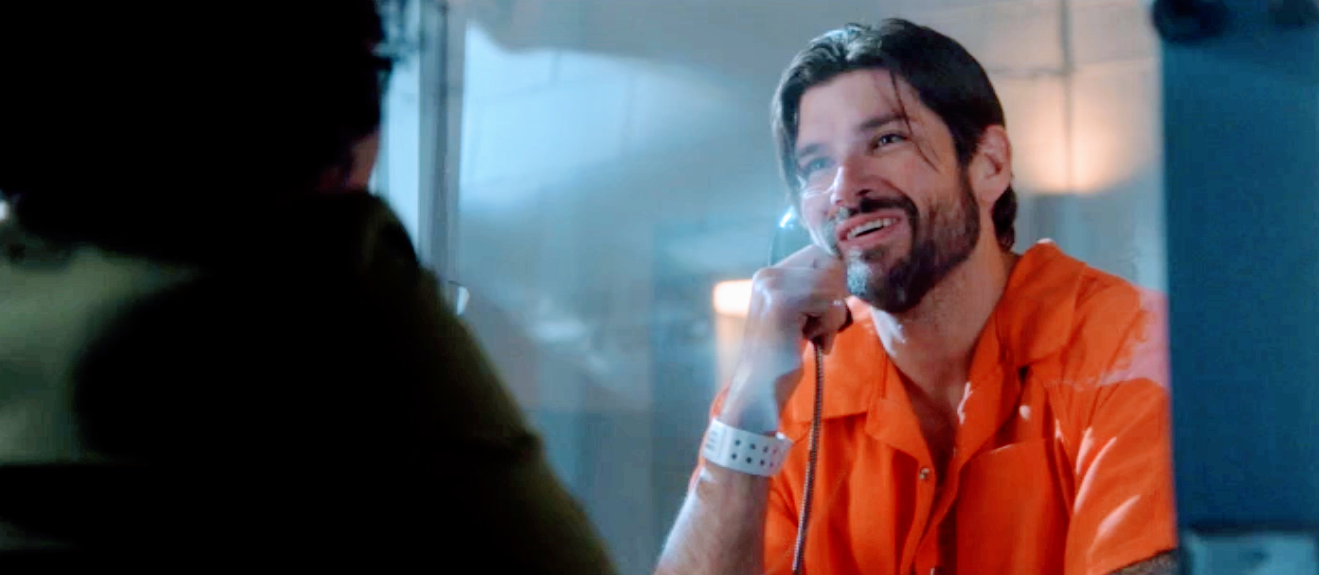
Kevin McNamara caught the acting bug when he was a kid. At age 6 Kevin would watch TV and whenever someone had an accent he would record it in a var and then play the tape over and over until he had mastered the accent. Kevin always knew what he was meant to do. “As for my professional career on TV; my first TV Credit was a top of show guest star on Cold Case back in 2010. I remember being so emotional when I got the phone call. I felt like my first booking being on the number 1 show at that time, and a top of show guest star confirmed that this was what I was meant to do.” says Kevin McNamara
indieactivity : What acting technique do you use?
Kevin McNamara : I don’t use a specific technique. I have studied several but I feel like being aware of what works for different characters is key. I would say that I connect closest to the Adler technique of creating the intricate backstory of character the most. I think it’s important to study any method that lends insight and blend what works for you. No character is the same and neither should be your approach.
You are an experienced actor, how much work: creative, energy or focus do you put into your scenes?
Kevin McNamara : I put an immense amount of focus and effort into each scene. In order top respect the material, production, your fellow actors, and the art itself you must show up to set knowing every aspect of what you bring to life. That is the difference between an artist and a journeyman.

You have worked on popular shows, and films, how has each show impacted your work as an actor and your career?
KM : Each role brings you so much in the way of experience and growth not only in career but in artistry. If you approach each project with absolute focus and presence there is no way for you not to learn. You can learn a lot in an acting school, but you can become so much more watching and absorbing knowledge on set. An actor should be a sponge.
How does the work you do on one show, compared to another?
KM : No two sets are the same. You are always dealing with different visions and artistic goals from set to set. This is why I say an actor has to be a sponge. In order to connect with the needs and energy of the artists around you, it is important to be present. When I start on a new set I like to walk around between my scenes and soak up the experience behind the scenes. I don’t learn sitting in my dressing room. I don’t need that time to prepare if I show up to set having done the work I should have done. Every person on a set is an artist in their own field. Watch and learn. You never know who you will meet and draw inspiration from for your next character choice.
Let’s take a project you did; how did you prepare for such a role: the cast, the physicality the terrain, the climate, weather, and the demands of the project?
KM : One project that stands out that I have done will most likely never see the light of day. It was called Coyote Requiem and for all intents and purposes it was a crash course in Cinema for me and nothing else. I played a character named Surf, a Guardian Angel, and the manifestation of the feelings (hope) of the lead character. I broke the script down several times. I also had to create an entire backstory for the character as he wasn’t actually a person, to begin with. This gave me free rein to play. I love experiences like that. It’s rare that you get that freedom. Typically a writer has set parameters but every once in a while you get to create someone out of thin air. We shot in the Arizona desert for 2 weeks in scorching heat during the day and frigid cold at night. It was physically taxing but with the intense emotional and physical strain needing to be seen in the progression of the characters, it was necessary. It was my first film experience and my favorite to this day.

As one of the cast on the project, how did this ‘choice’ work for you?
KM : The word choice is thrown around a lot in Acting. The choice is always questioned and analyzed. I like to think of myself as a conduit. I feed myself information about a Character that I am trying to bring to life and I allow that information to flow out of me in whatever direction it choses. Yes! I make choices of characteristics of characters but as regards the performance itself I don’t think much of choice but reaction. I react to what I am getting from my fellow actors and the energy created in that moment.
How do you create the character from a script into a person?
KM : As I said before be a sponge. Do the work before you get to set but once you arrive be malleable. You have to have a clear idea of who the character is but also be aware that no one is who they TRULY are at all times. Just as in real life we adapt to moments and people around us. The same is true on set. I like to always be aware that when I am on set, I am surrounded by other artistic minds that may see things that I don’t and I must be open to brilliance.
What part of story challenges you when you read a screenplay? What drives you to get on any project?
KM : I have to truly care about the lead character within the first 5 pages even if it’s not the character I am going to be playing. The lead is the catalyst for the project and if I don’t care what happens to them or get an idea of why their story needs to be told then I will have no inspiration for my character.
Explain a creative choice you took on a set of a recent production?
KM : I had a recent experience on set where I believed I had a clear vision of the intention of the writing from the standpoint of my Character. After a few takes, it still didn’t feel right. Finally, the director called the writer over and asked him what he felt when he wrote the dialogue. What he personally felt at that moment. After his response (which was a bit more colorful than I was playing it) the director said Give me that. It changed the whole scene for me and it was beautiful.

You’re not new to show business, TV, or indie films. What do you enjoy about this work that keeps you going?
KM : Honestly this is the only thing I have ever truly loved. I am in love with telling stories, invoking emotion, and creating escape. I know it’s cliche but fuck if it ain’t true.
Give an example of a bad direction you received from the director during the production?
KM : I don’t ever judge other artists visions as good or bad. I am not here to judge anyone’s work or artistry. All I can say is that it’s always interesting to just try to blend someone else’s view with your own but always be true to the character you have created in the process.
How do you prefer to collaborate with cast members from scene to scene?
KM : It depends on the process of the cast member. I have been on set with actors who couldn’t rehearse enough and I have been on set with actors who wanted to save it for the scene. What is most important is having done YOUR work.
As the main cast on the film (mentioned above), describe the feeling of responsibility that you shouldered. Where you scared? Or did it fire you up? What scenes were difficult to shoot?
KM : I don’t ever feel fear when I work. I think that is the manifestation of doubt and unpreparedness. If I am on that set I have already proven my talent. There is nothing to fear if you have done the work that’s necessary. When I arrived to set I was anxious to let out the character inside. I was excited to play and experience the work my fellow artists had created.
What did you take away from that film production?
KM : That I belonged there.
What do you like most about directors and his/her collaboration with his/her team?
KM : It really depends on the director. I love a director who allows us to discover a scene. A director who allows us the freedom to try things and step out of the box a bit while knowing exactly what he wants.
What is next for Kevin McNamara?
KM : That is such a loaded question at this time. There really is no plan for anyone with the current Covid-19 issue. No one is really sure of what the industry is going to look like moving forward. I am on hold for both of the tv shows I am presently on Why Women Kill and Games People Play but beyond that who knows. I have also gotten funding for a feature film that I wrote and will be directing but that too is on hold. Fingers crossed.
What advice do you give actors regarding what you learned on the project?
KM : Be a Sponge.
Tell us what you think of the interview with “Kevin McNamara” What do you think of it? What ideas did you get? Do you have any suggestions? Or did it help you? Let’s have your comments below and/or on Facebook or Instagram! Or join me on Twitter @oladapobamidele
Follow Kevin McNamara on Social Media
IMDb
Twitter
Instagram
Vine
Where We Stay by Florence Bouvy to Screen at CIFF
Where We Stay | CIFF Selected Drama About Friends Hiding Unspoken Truths
This Place by V.T. Nayani: Two Women in Love for the First Time on VOD & DVD March 25
Freestyle Acquires “This Place” for March Release
Sonoma International Film Festival Wraps with Unforgettable Films, Culinary Cinema and Packed Pop-In Events
Sonoma International Film Festival Grand Jury and Audience Award Films Announced
Livestreams with Grandmapuzzles by Emily Sheskin to Screen at CIFF
CIFF Selected Documentary About Twitch Streaming Jigsaw Puzzler
VisionRey Snags Acceptance for 2 Films at FilmApalooza
VisionRey is a Mexican-American Female-Led Film Company
Pomegranate by Weam Namou: on VOD Platforms and DVD on March 4
Freestyle Acquires Dramedy “Pomegranate” for March Release
Into The Spotlight by Thaddeus D. Matula: on VOD and DVD February 21
Freestyle Acquires Doc “Into the Spotlight”









